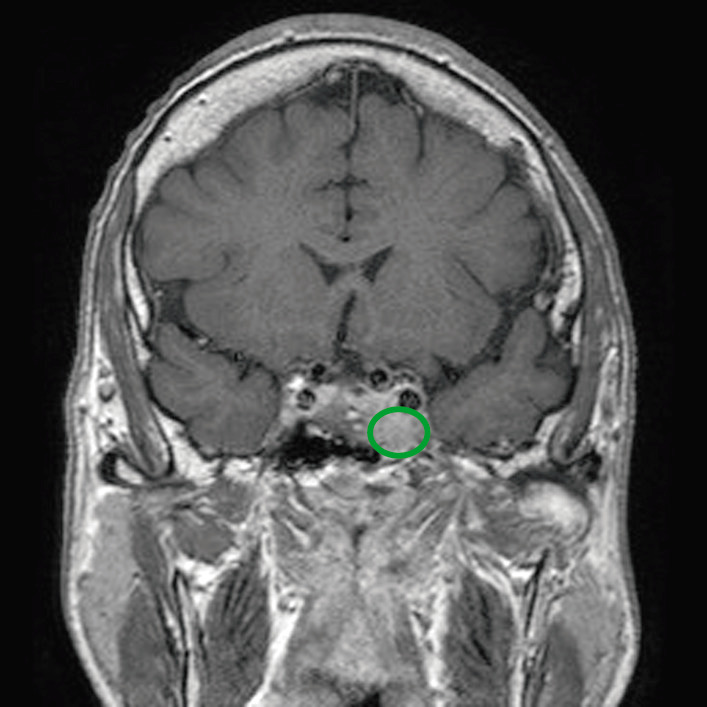Playlist
Show Playlist
Hide Playlist
Pituitary Case: 53-year-old Man after Transsphenoidal Resection of Pituitary Adenoma
-
Slides 01-02-01 Adrenal Pituitary.pdf
-
Reference List Endocrinology.pdf
-
Reference List Pituitary and Hypothalamic Disorders.pdf
-
Download Lecture Overview
00:01 Let's go on to another case. 00:03 A 53-year old man was recently discharged after a transsphenoidal resection of a pituitary macroadenoma that had compressed his optic nerves. 00:13 For the last week, he has felt dizzy, weak, and has had reduced appetite. 00:19 On discharge, he was told that his hormonal labs were all normal. 00:24 Currently, he denies increased thirst or increased urination. 00:28 He is on no medications, and his exam reveals normal vital signs and is otherwise unremarkable. 00:35 His labs are significant for a sodium of 129 milliequivalents per liter. 00:40 What is the most likely diagnosis? In this case, we have a patient who has had recently had pituitary surgery, who now has symptoms of weakness, and dizziness, and reduced appetite. 00:55 He has no increased thirst or urination, but he is also hyponatremic. 01:00 His serum sodium of 129 is very low. 01:05 After a pituitary procedure, a low pituitary hormone release should be suspected. 01:11 The clinical history could suggests a decrease in cortisol based on the fact that his sodium is low, which would fit with the dizziness and weakness But we are told that his vital signs are normal, so he's not hypertensive. 01:24 After pituitary surgery, always monitor for hormone deficiencies. 01:29 In patients with abnomal sodium levels after pituitary surgery, always consider diabetes insipidus or SIADH as possible causes. 01:40 The presence of Hyponatremia usually favors a diagnosis of SIADH, whereas central diabetes insipidus is associated with a normal or elevated sodium level, polydipsia, and polyuria. 01:55 Given the absence of polyuria and thirst, SIADH is favored as the most likely diagnosis for his hyponatremia.
About the Lecture
The lecture Pituitary Case: 53-year-old Man after Transsphenoidal Resection of Pituitary Adenoma by Michael Lazarus, MD is from the course Pituitary and Hypothalamic Disorders.
Included Quiz Questions
What is the most likely diagnosis for the patient in the following case? A 53-year-old man was recently discharged after transsphenoidal resection of a pituitary macroadenoma that compressed his optic nerves. He complains of dizziness, weakness, and reduced appetite and denies increased thirst or increased urination. He is taking no medications. Physical examination: Vital signs normal; otherwise unremarkable. Laboratory test results: "Hormonal lab" results normal upon discharge, sodium level of 129 mEq/L.
- Syndrome of inappropriate antidiuretic hormone secretion (SIADH)
- Diabetes insipidus
- Cushing syndrome
- Addison's disease
Customer reviews
5,0 of 5 stars
| 5 Stars |
|
1 |
| 4 Stars |
|
0 |
| 3 Stars |
|
0 |
| 2 Stars |
|
0 |
| 1 Star |
|
0 |
useful case. Very good explanation and clear logical approach to a post op patient.




